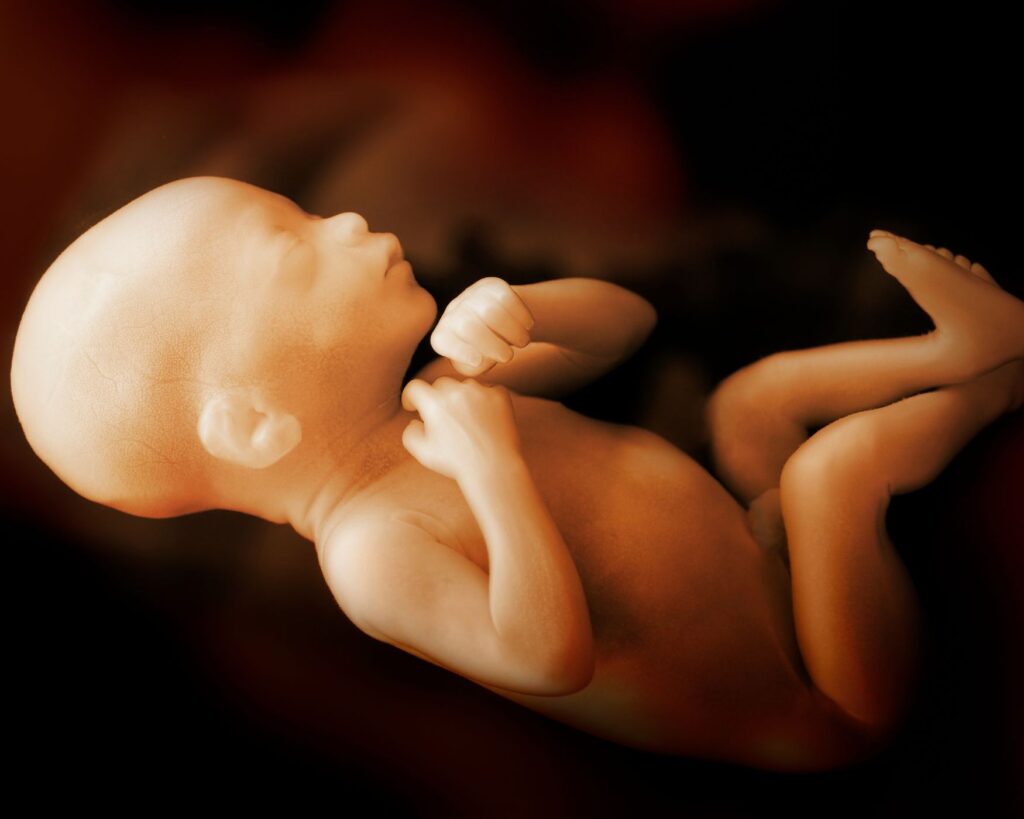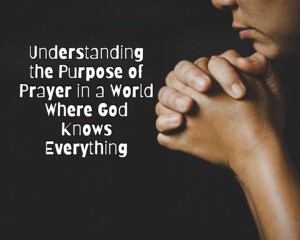In today’s society, where the debate over abortion rages with fervor and complexity, individuals and communities find themselves grappling with questions of morality, ethics, and compassion. At the heart of this debate lies a deeply personal and profound inquiry: What does Jesus think about abortion? As Christians, seeking to navigate this contentious issue requires us to turn to the teachings of Jesus Christ and the Holy Scriptures, endeavoring to understand the sanctity of life through a lens of faith and love.

The issue of abortion presents a moral crossroads, challenging us to reconcile the pain and desperation that can accompany unplanned pregnancies with the biblical affirmation of life’s intrinsic value. This exploration is not about casting judgment or sowing division but about seeking clarity and guidance from the life and teachings of Jesus, who exemplified love, compassion, and mercy in every action and word.
As we delve into this Christian exploration of abortion and the sanctity of life, our aim is to illuminate the path laid out by scripture. By examining what the Bible, particularly in the NKJV, tells us about life, compassion, and our responsibilities to one another, we hope to offer insights that resonate with believers striving to uphold their faith in challenging times. This journey through scripture and reflection seeks not only to answer what Jesus might think about abortion but also to understand how we, as followers of Christ, are called to respond to this issue in our lives and communities.

The Foundation of Life: Biblical Principles
The Bible, revered as the Word of God, provides profound insights into the sanctity and value of life. From the Old Testament to the New, scripture affirms that life is not only a gift from God but a sacred trust for which we are accountable. In understanding the Christian perspective on abortion, it is essential to ground our exploration in these biblical principles.
- Life as a Sacred Gift: Scripture is replete with references to the sanctity of life. For instance, Psalm 139:13-16 (NKJV) poetically describes God’s intimate involvement in our creation, “For You formed my inward parts; You covered me in my mother’s womb… Your eyes saw my substance, being yet unformed. And in Your book they all were written, The days fashioned for me, When as yet there were none of them.” This passage, among others, highlights the belief that life begins at conception, under the watchful eyes of God.
- Made in God’s Image: The Genesis creation narrative emphasizes that humans are made in the image of God (Genesis 1:27), imbuing every individual with inherent dignity and worth. This divine image is foundational to the Christian understanding of the value of life, suggesting that every life, from conception, is precious and worthy of protection.
- Jeremiah’s Call: Jeremiah 1:5 further underscores the value of life before birth, with God’s words to the prophet, “Before I formed you in the womb I knew you; Before you were born I sanctified you; I ordained you a prophet to the nations.” This indicates God’s purpose and presence in our lives even before birth, affirming the personhood and divine intention for each life.
Check out this preborn child’s prayer against abortion
The Christian understanding of the sanctity of life challenges believers to view the issue of abortion through a lens that recognizes each life as a unique creation of God, endowed with purpose and value from its very inception. While the legal and societal debates surrounding abortion are complex and multifaceted, the biblical principles guiding the Christian stance are rooted in a profound reverence for life as a sacred gift from God.

What Jesus Teaches About Life and Compassion
In exploring the Christian perspective on abortion, it is essential to consider the teachings of Jesus Christ, particularly His messages of love, compassion, and care for the vulnerable. Jesus’ ministry, as documented in the New Testament, offers profound insights into how Christians are called to respond to complex moral issues, guided by a deep commitment to love and empathy.
- Love and Compassion as Core Principles: Jesus’ commandment to love one another as He has loved us (John 13:34) serves as a foundational principle for Christian ethics. This divine love, characterized by sacrificial giving and a deep concern for the well-being of others, informs the Christian approach to all aspects of life, including the issue of abortion.
- Valuing the Vulnerable: Throughout His ministry, Jesus consistently showed special care for the vulnerable and marginalized in society. His interactions with women, children, and the downtrodden exemplify His teaching that all individuals are valuable in the eyes of God. The parable of the Good Samaritan (Luke 10:25-37), for instance, challenges us to consider who our neighbor is and how we are to show them mercy and compassion. The teachings of Jesus not only offer a vision for how to live but also call Christians to action. In the context of the abortion debate, this might translate into providing support for those facing unplanned pregnancies, advocating for policies that protect both mothers and children, and engaging in compassionate dialogue with those who hold different views.
Understanding the depth of Jesus Christ’s love and His teachings about compassion and care for the vulnerable can profoundly influence the Christian response to abortion. It invites believers to reflect on their responsibilities towards others, especially in upholding the sanctity of life, and encourages a response rooted in love, support, and understanding.
By grounding our perspective in Jesus’ teachings, Christians are called to navigate the complexities of abortion with a heart shaped by compassion, seeking ways to embody Christ’s love in all circumstances. This approach does not simplify the issue but rather acknowledges the nuanced and often painful realities involved, emphasizing the need for grace, empathy, and communal support.

Biblical Verses Related to Life and the Unborn
- Psalm 139:13-16 (NKJV): “For You formed my inward parts; You covered me in my mother’s womb. I will praise You, for I am fearfully and wonderfully made; Marvelous are Your works, And that my soul knows very well. My frame was not hidden from You, When I was made in secret, And skillfully wrought in the lowest parts of the earth. Your eyes saw my substance, being yet unformed. And in Your book they all were written, The days fashioned for me, When as yet there were none of them.”
- Why It Matters: This passage is often cited to illustrate God’s intimate knowledge and crafting of human life even within the womb, underscoring the belief in the sanctity and value of life from its earliest stages.
- Jeremiah 1:5 (NKJV): “Before I formed you in the womb I knew you; Before you were born I sanctified you; I ordained you a prophet to the nations.”
- Why It Matters: God’s declaration to Jeremiah speaks to the divine purpose and calling placed on an individual’s life even before birth, reinforcing the concept that every life has value and meaning.
- Luke 1:41-44 (NKJV): “And it happened, when Elizabeth heard the greeting of Mary, that the babe leaped in her womb; and Elizabeth was filled with the Holy Spirit. Then she spoke out with a loud voice and said, ‘Blessed are you among women, and blessed is the fruit of your womb! But why is this granted to me, that the mother of my Lord should come to me? For indeed, as soon as the voice of your greeting sounded in my ears, the babe leaped in my womb for joy.'”
- Why It Matters: The interaction between Mary and Elizabeth highlights the recognition of life and even joy within the womb, suggesting a continuity of personhood before and after birth.
- Exodus 20:13 (NKJV): “You shall not murder.”
- Why It Matters: While this commandment does not specifically mention abortion, it is foundational to the Christian understanding of the sanctity of life. Many interpret this command as extending to all forms of innocent human life, including the unborn.
- Proverbs 24:11-12 (NKJV): “Deliver those who are drawn toward death, And hold back those stumbling to the slaughter. If you say, ‘Surely we did not know this,’ Does not He who weighs the hearts consider it? He who keeps your soul, does He not know it? And will He not render to each man according to his deeds?”
- Why It Matters: This admonition to protect those who are vulnerable or at risk of death is often applied to the abortion debate, encouraging Christians to advocate for the lives of the unborn.
These verses and the principles they convey form a significant part of the Christian argument against abortion, underscoring a belief in the inherent worth of every human life, including the unborn. They serve as a reminder of the deep responsibility Christians feel to protect and cherish life at all stages, guided by a faith that values each person as a unique creation of God.

Revisiting the Sanctity of Life Through a Christian Lens
The Christian stance on abortion is deeply rooted in the belief in the sanctity of life. This foundational principle is not merely a religious doctrine but a profound affirmation of the value and dignity of every human being, as created and loved by God. From this perspective, abortion is seen not just as a medical or personal decision but as a moral issue that touches on the very essence of life and its divine inception.
Understanding Life’s Divine Origin
Scripture teaches that life is a sacred gift from God, with each individual uniquely designed and known by Him even before birth. Passages such as Psalm 139:13-16 and Jeremiah 1:5 illuminate the intimate relationship between God and each person, underscoring the belief that life begins at conception and is worthy of protection and care.
The Moral Implications of Abortion
Viewing abortion through the lens of Christian ethics and the commandment “You shall not murder” (Exodus 20:13) raises significant moral questions. The act of abortion is seen as contrary to God’s commandments and the calling to protect the innocent and vulnerable. It’s a call to uphold the sanctity of life, recognizing that each life, including those yet unborn, carries inherent value and purpose.
Compassion, Healing, and Support
The Christian response to abortion is not solely about condemnation but is deeply concerned with compassion, healing, and support. It’s about offering love and assistance to those facing unplanned pregnancies, providing alternatives, and fostering a culture that values life. For those seeking guidance, support, or simply a compassionate ear, resources like Your 24/7 Bible Hotline for Life’s Emergencies can be a valuable source of comfort and direction.

A Call to Reflect and Act
For Christians and those exploring the Christian faith, the issue of abortion invites a profound reflection on the values we hold and the actions we take in support of life. It’s a call to engage with the complexities of life with empathy, to support life-affirming choices, and to advocate for the protection of the vulnerable. This perspective challenges us to consider how we, as individuals and communities, can embody the love, compassion, and mercy that Jesus taught, especially towards those who are most in need of care and understanding.
In navigating the abortion debate, Christians are encouraged to lean on their faith, seek wisdom from Scripture, and engage in loving, constructive dialogue. It’s through these conversations, guided by a commitment to uphold the sanctity of life, that we can hope to foster a world more reflective of the values Jesus espoused.

The Ripple Effect of Life’s Potential
The Value of Every Potential Life
At the heart of the Christian perspective on abortion is the belief in the inherent value of every life, including those not yet born. The argument that every person who supports abortion could themselves have been aborted underscores a profound truth: every life has the potential to contribute meaningfully to the world. This potential for life to unfold in unexpected, impactful ways is central to the argument against abortion.
Reflecting on What Could Be Lost
The hypothetical scenario invites reflection on the countless contributions to society that could be lost due to abortion. This includes not just the potential for individuals to support various causes, but also the broader contributions they might make to humanity—innovations, leadership, compassion, and acts of kindness that could shape the future in ways we cannot foresee.
Fostering a Culture of Life
From a Christian standpoint, fostering a culture that values every potential life is crucial. This involves not only opposing abortion but also actively supporting measures that care for pregnant individuals and families, making it easier to choose life. It’s about creating a society where the potential of every individual is recognized and nurtured, from conception onward.
A Call to Reflect on Our Shared Humanity
The reflection on the hypothetical absence of individuals due to abortion serves as a call to consider our shared humanity and the collective responsibility to protect and cherish life. It challenges individuals and communities to consider the broader implications of abortion beyond personal choice, emphasizing the interconnectedness of all lives.
Moving Towards Compassionate Action
The Christian response is not merely oppositional but is deeply rooted in compassion and action. It’s about advocating for policies and practices that uphold the dignity of life, providing support for those facing difficult decisions, and fostering a community that welcomes every life with love and support.
In contemplating the profound implications of abortion, Christians are called to engage with the topic with empathy, understanding, and a commitment to life. This involves not only advocating against abortion but also working tirelessly to support life in all its stages, reflecting the love and compassion at the heart of Jesus’ teachings.

Contemplating the Unseen Impact: The Potential Within Each Life
As we navigate the complexities of the abortion debate, it’s crucial to approach the conversation with a heart of compassion and an openness to explore the profound implications of our choices. From a Christian perspective, every life is a unique creation by God, endowed with potential and purpose that can extend far beyond our comprehension. This brings us to a thought-provoking consideration: What if among those lives ended before birth were individuals destined to make groundbreaking contributions to the world?
The Unseen Potential of Every Life
The idea that an aborted life could have been someone who might cure cancer, revolutionize technology, lead nations towards peace, or contribute significantly to the betterment of humanity is a poignant reflection on the value and potential inherent in every individual. This perspective challenges us to consider not just the immediate circumstances surrounding the decision to abort but the long-term implications of denying the opportunity for life to unfold.
- Curing Cancer: Imagine a future where cancer is no longer a terminal diagnosis but a curable condition, thanks to the research and dedication of an individual who was given the chance to live.
- Changing the World: Consider the social reformers, peacemakers, and visionaries who have shaped our history. Each life holds the possibility of profound impact, contributing to a legacy of change and progress.
- Innovations for Life on Earth: The potential for innovation and discovery lies within every life. The next breakthrough in renewable energy, water purification, or sustainable agriculture could come from a mind that was almost not given the chance to contribute.
- Leadership for the Future: Leadership is not just about authority but about inspiring and guiding others towards a better future. The world is in constant need of compassionate, principled leaders, some of whom may be among the lives at risk of being cut short by abortion.
A Christian Response Rooted in Hope and Action
Reflecting on what might have been lost through abortion is not about inducing guilt or shame but about inspiring a renewed commitment to life and potential. As Christians, we are called to view each life through the lens of what could be, fueled by the belief in a Creator who has a purpose for every individual.
- Supporting Life and Potential: This involves advocating for and supporting measures that help those facing unplanned pregnancies, providing them with the resources, care, and community support needed to choose life.
- Fostering Hope and Healing: For those who have experienced abortion, the Christian community is called to offer hope and healing, reminding them of God’s unfailing love and forgiveness and the possibility of redemption and new beginnings.
- Promoting a Culture of Life: It’s about working towards a society that not only protects life in the womb but also cherishes and nurtures it, ensuring every individual has the opportunity to reach their God-given potential.
In contemplating the unseen impact of every life, we are reminded of the profound responsibility to protect and nurture the potential within each person. As followers of Christ, we are encouraged to look beyond the immediate to the eternal, fostering a world where every life is valued, every potential is realized, and every individual is recognized as a beloved creation of God, capable of contributing immeasurably to our shared humanity.

Inspirational Stories of Overcoming Early Adversities
- Steve Jobs: The co-founder of Apple Inc., Steve Jobs, was born to an unwed graduate student who considered adoption for him. Jobs was later adopted by a loving couple who nurtured his interests in electronics and design. His innovations revolutionized the technology industry, impacting how we communicate, work, and entertain ourselves today.
- Jesse Jackson: The civil rights leader and two-time U.S. presidential candidate was born to a teenage mother and grew up in the segregated South. Jackson’s achievements in advocating for civil rights and social justice have left an indelible mark on American society, promoting equality and opportunity for marginalized communities.
- Leo Tolstoy: The renowned Russian author of classics such as “War and Peace” and “Anna Karenina” was born into nobility but faced significant emotional challenges after being orphaned at a young age. Tolstoy’s profound explorations of human nature, morality, and society continue to influence readers and thinkers worldwide.
These stories, and many others like them, underscore the unforeseeable impact of giving every life a chance to unfold. They challenge us to consider the potential lost to the world when lives are ended before they begin and highlight the transformative power of love, adoption, and the human spirit to overcome adversity.
The Christian Perspective on Redemption and Purpose
From a Christian viewpoint, these stories resonate with themes of redemption, purpose, and the belief that God has a plan for every life. The Bible teaches us that every individual, regardless of their beginnings, is endowed with worth and potential by their Creator. Understanding the Old Testament laws can provide further insight into how God’s instructions aimed to protect and nurture life, emphasizing justice, compassion, and care for the vulnerable.
These narratives of individuals who overcame early adversities to make significant contributions to the world serve as a powerful reminder of the Christian call to value and protect every life. They inspire us to support those facing difficult decisions about pregnancy with compassion and understanding, offering hope and practical assistance that affirms the value of both the mother and the child.

Embracing Forgiveness and New Beginnings
No matter the choices we’ve made in the past, the message of the Gospel is clear: redemption and a new path forward are always possible through Jesus Christ. The Apostle Paul, whose early life was marked by actions against Christians, experienced a profound transformation that led him to become one of the most influential figures in spreading the Gospel. His story, among many others in the Bible, underscores the power of God’s forgiveness and the potential for change in every life.
- 2 Corinthians 5:17 (NKJV): “Therefore, if anyone is in Christ, he is a new creation; old things have passed away; behold, all things have become new.”
This verse offers profound encouragement, reminding us that our past does not define our future. In Christ, every individual has the opportunity to start anew, to experience a life transformed by His love and guided by His wisdom.
Moving Forward in Faith and Understanding
For those seeking to understand more about Jesus, His teachings, and how to walk in His ways, taking the first steps towards deepening your faith can be life-changing. Whether you’re looking to make sense of past decisions or searching for guidance on how to live a life that reflects Christ’s love and compassion, learning about the Christian faith can provide direction, comfort, and purpose.
- Learning About Jesus and His Plans for You: If you’re wondering about Jesus’ teachings, His plan for your life, and how you can experience the fullness of His love and grace, exploring resources designed to guide you on this journey can be invaluable. For those beginning this journey, How to Be a Christian: Starter Guide offers insights into understanding the core principles of the Christian faith and how to apply them to your life. This guide can be a resource for anyone looking to embrace the teachings of Jesus and discover the profound impact they can have on your life’s direction and decisions.
- Invitation to Explore and Grow: As you seek to learn more about Jesus and His teachings, remember that the journey of faith is a personal and transformative process. How to Be a Christian: Starter Guide can serve as a companion on this journey, helping you to navigate the questions and challenges that arise as you grow in your understanding and relationship with Christ.
In the face of life’s complexities and the decisions we face, the Christian message of redemption, hope, and new beginnings offers a beacon of light. By turning to Jesus and exploring His teachings, we open ourselves to the possibilities of transformation and purpose, grounded in His unfathomable love. Regardless of where we’ve been or what we’ve done, in Jesus, we find the promise of a future filled with grace, healing, and the opportunity to make choices that honor the sanctity of life and reflect His love to the world.
It is never too late to come to Jesus or to have Plans With Jesus, until you are no longer alive on earth, after that it IS too late.
As an Amazon Associate we earn from qualifying purchases through some links in our articles.



